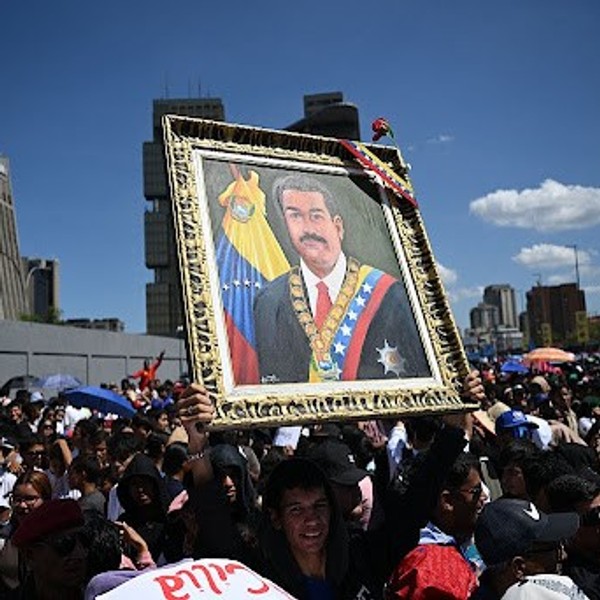Cipher Brief Expert Nick Fishwick CMG retired in 2012 after nearly thirty years in the British Foreign Service. He held postings in Lagos, Istanbul and Kabul. His responsibilities in London included director of security and, after returning from Afghanistan in 2007, director for counterterrorism. His final role was as director general for international operations.
I wonder what message Russian spies, Islamist terrorists, right-wing killers and criminal cartel leaders would like to pass on to the British government just now.
Maybe it is: “Guys! Let’s put past differences to one side and concentrate on humanity’s common fight against COVID-19!” Or maybe it is: “The virus has made you weaker in new ways, and we’re coming for you”.
COVID-19 is affecting everyone, which means it’s affecting governments and people. It’s affecting the relationship between government and people. The state has taken on powers not seen before in peacetime. It has imposed huge curtailments to our freedoms and has used the police – sporadically and inconsistently – to enforce compliance. On the other hand, the state’s resources have never been so stretched. Financial revenues are down, and tax payments deferred; huge financial resources have to be found to prevent complete economic collapse and to help our health and emergency workers respond to the virus; huge numbers of people in key roles can’t work, not only for health reasons. So, while the state is much more powerful and intrusive, at the same time its limitations and vulnerabilities are stark. And these vulnerabilities represent opportunities for some.
Some of those who mean to do us harm will be asking questions like:
- Will the British security state be distracted by the challenges to health and economy posed by the virus?
- Short-term, will the resources of Britain’s military, law enforcement and security forces be stretched by illness, home-working and COVID-19 distractions – eg, more police checking that the COVID lockdown is being obeyed, fewer to keep an eye on foreign spies and terrorists?
- Medium-term, how will the economic cost of the virus impact security and law enforcement resources?
- As an adversary, what can we can do to make these pressures greater?
- As an adversary, will there be less surveillance focused on us?Personally, I am not particularly worried about the resilience of the British security agencies. They are a resourceful lot and are at their best when responding to a challenge - even if they will never have seen one quite like this before. Twenty years ago, SIS (MI6) carried on happily enough despite getting an Irish terrorist rocket through the upper offices of its HQ in south London. GCHQ carried on as normal when floods threatened to sink the west of England a few years later. The agencies have overcome unusual disruptions before. Their network of international partnerships will not have been affected by the virus and they will have the ingenuity to continue to develop a range of sources, technical and non-technical, producing intelligence vital to our national security.
Nor do I worry that our agencies are going to find themselves bereft of political support. The Johnson government has a keen sense of the importance of national security issues and the opposition Labour Party now has the opportunity, under its new leader Keir Starmer, to rethink its approach.
The new security challenges posed by COVID-19 are going to be twofold.
First, the virus has underscored to everyone the importance of technology. It has made social isolation a lot more bearable. We shop, socialise and otherwise amuse ourselves online – Netflix, Spotify and so on. Similarly, I suspect our enemies will have had to stop some physical activities – face to face meetings to organise wickedness, good old-fashioned physical crimes and so on. But they won’t all have taken a sabbatical or reformed their ways. They will have gone online. Of course, we already knew that the smarter hostile spy agencies, Islamist terrorists, right-wing nutters, organised criminals (I have a feeling that organised crime as an existential threat may just get a decisive boost from this crisis) and so on, were already formidably good at working online. But the virus is going to give this trend a durable surge, which means our agencies will need to be able to respond in a way that does not damage our values.
Secondly, Britain’s national security has always been deeply influenced by geo-political developments off its shores. Historically, we got nervous if one nation or other threatened the balance of power on the European continent. We need to trade by sea and by air. We are a key member of NATO and we still have a permanent seat on the security council at the UN. Millions of our people, while loyal to our country, also have backgrounds that give them ties to all sorts of places around the world. Right now, COVID-19 is causing a kaleidoscopic change across the world. How big a change is not clear, but it could be the biggest since the end of the Cold War. Countries that looked stable four months ago may not look stable four months hence. Military alliances and international organisations that looked rock solid at the end of 2019 may start to look flaky. Superpower rivalries may be worsening. Traditional threats will evolve and – driven by technology – utterly new ones may appear.
Britain can’t afford to lose track of these events – but, unless its intelligence agencies remain at the top of their game, it risks doing so. Britain needs its eyes and ears.
Read more expert-driven national security insights, analysis and opinions in The Cipher Brief















